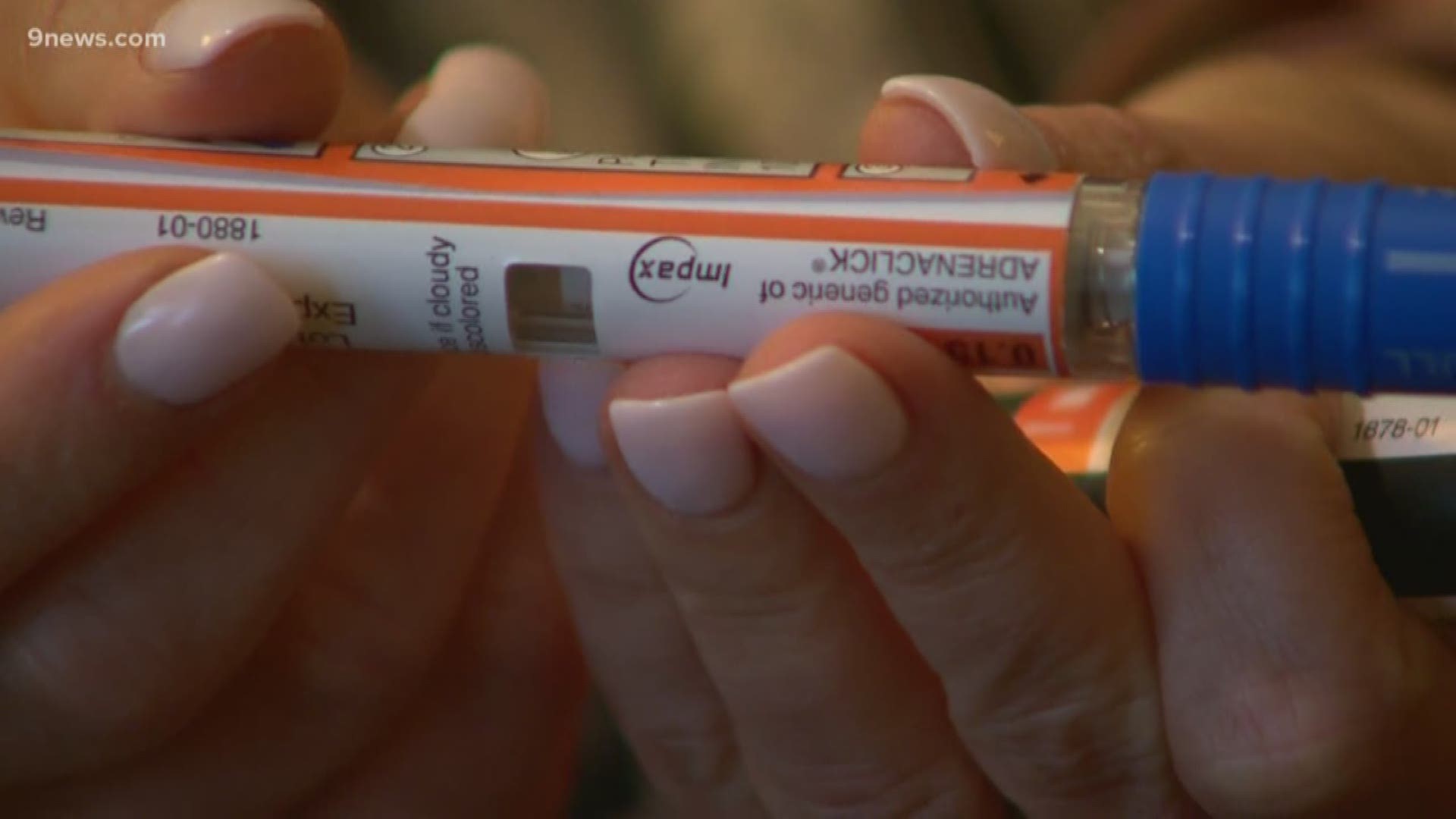CENTENNIAL, Colo. — A shortage of a life-saving drug is causing panic among patients at risk of severe allergic reactions.
According to medical experts, there's been a limited supply of epinephrine for at least a year and people like Kerry Terry, the mother of a 6-year-old son in Centennial with a severe tree nut allergy, said they're having to pay the price.
Terry referred to the drug as "lifesaving" for her family after her son, Max, went into anaphylactic shock three years ago. Terry said they knew he was allergic to peanuts, but weren't aware he had developed an allergy to cashews until after eating a granola bar filled with them.
"So, we ended up at urgent care and, by the time we got there, his temperature was 95 degrees," Terry said. "His airway was closing and he was in real bad shape."
Two epinephrine auto-injectors had to be used on Max before he was taken to Children's Hospital Colorado. On the way, Terry said paramedics administered a third auto-injector.
"It was horrible, absolutely horrible," Terry said. "I have never felt more out of control in my entire life than I did in that moment -- more helpless. During that, I even asked them, 'Is he going to survive this?' They wouldn't answer me, so there was a period of time we didn't know what was going to happen."
Max survived the reaction, but Terry said she takes no chances anymore and treats her son's epinephrine doses "like your keys," never going anywhere without them.
A full prescription of epinephrine consists of two auto-injectors. However, on Monday, when Terry went to get her son's prescription filled, she said her Kaiser Permanente pharmacy would only give her one, citing a national shortage of generic epinephrine.
"I was horrified and I immediately asked, 'What is this and where is the other one?'" Terry said.
Kaiser cited an epinephrine shortage which was also mentioned in a statement released by the company last August.
"Until supplies return to adequate levels, our pharmacies are dispensing one auto-injector pen at a time per patient," Amy Gutierrez, Senior Vice President and Chief Pharmacy Officer of Kaiser Permanente, wrote. "This practice is endorsed by our physician and pharmacist experts to preserve access to this lifesaving medication for all of our patients during this shortage. As is always the case, treatment plans for a specific clinical situation are developed by each patient’s physician and communicated to our pharmacies."
The company said it would remove the "one-pen limit" when the drug's supplies are adequately restored.
Effects of the shortage are being felt across the country, including at the newly-open UCHealth Highlands Ranch hospital where Dr. Ben Usatch works.
"It's actually challenging for the hospitals, for the EMS folks, to get epinephrine to them selves well-stocked," Usatch said.
However, Usatch said hospitals are still able to get the dosages they need to treat patients suffering anaphylaxis.
He said he strongly recommends patients carry two pens of injectable epinephrine, but most people -- in his experience -- only require one should something happen. He said the second one is recommended as a precaution should something go wrong with the first injector or if the first dose wears off before a patient is able to get to a hospital for further treatment.
A study from the Journal of Allergy and Clinical Immunology showed that second epinephrine dose is required by 16 to 36 percent of patients.
In the statement released by Kaiser, the company also said it wouldn't charge patients until they've been given a second injector.
"We are also in the process of communicating a way for members who have already paid two co-pays for one prescription to obtain a refund," the statement continued.
However, Terry said Kaiser still tried to charge her separately for each auto-injector.
"I mean, something just triggered in me that is like, 'This is wrong and I don't want to do this,'" she said.
After pushing back, Terry said Kaiser Permanente eventually gave her a full prescription and charged her the appropriate amount. She's now sharing her experience so other patients can do the same.
"If I can just help one parent, you know, carry the proper medication and protect their child in an emergency like that, then that's why I did this."
SUGGESTED VIDEOS | Local stories from 9NEWS

